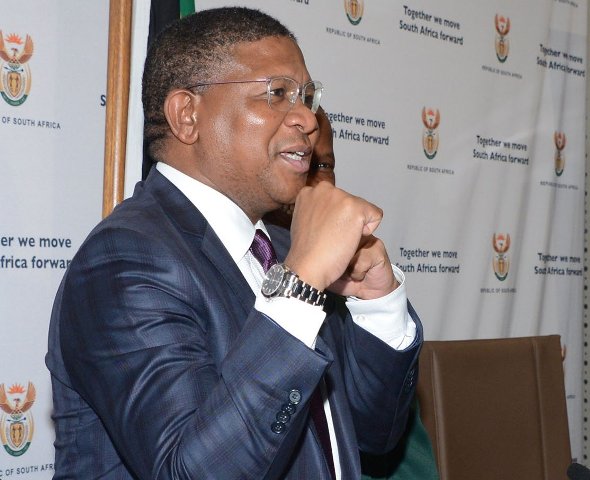Transport regulations must revise to adapt technological innovations: Mbalula
The Minister was on Monday addressing the Southern African Transport Conference at the Council for Scientific and Industrial Research (CSIR) in Tshwane.

- Country:
- South Africa
South Africa must not be relegated to catching up to the Fourth Industrial Revolution (4IR) but must be part of the innovators, says Transport Minister Fikile Mbalula.
“We must not only respond to what others have produced because that will often give rise to additional challenges. Research and Development funding has to be prioritized by the sector, especially governments,” the Minister said.
The Minister was on Monday addressing the Southern African Transport Conference at the Council for Scientific and Industrial Research (CSIR) in Tshwane.
“The pace at which Industry 4.0 innovation-breakthroughs are occurring is unprecedented and foreseen to grow faster, and so is the diffusion worldwide. The speed of diffusion compels companies and governments to change from the ‘business as usual’ way of doing things,” Mbalula said.
The Minister said recent transport technologies are evolving at such a rapid pace and it is vital that transport regulations be revised to accommodate technological innovations.
The Minister said the World Bank suggests that transport in the near future will be characterized by being “connected, data-driven, shared, on-demand, electric and highly automated”.
It is also expected to be more sensitive towards climate change pressures, and for externalities to be internalized by respective sources.
“These changes in transport technologies are consequently in tandem with the notion of global climate change, as a consequence of the combustion of fossil fuels by most vehicles. This remains a major environmental challenge currently facing Southern Africa and the world at large.
“The large-scale combustion of fossil fuels also contributes to the change in the composition of the earth's atmosphere. The result is a general process of global warming and if it continues unattended, will lead to significant changes in rainfall patterns and frequent, extreme weather events,” Mbalula said.
To respond to these disruptive factors, the government is committed to significantly reduce transport’s contribution to national Green House Gases emissions, through the implementation of the Green Transport Strategy (GTS).
The strategy is aimed at minimizing the adverse impact of transport on the environment while addressing current and future transport demands.
“As a stepping stone, as government, we need to actively promote investment in the production of biogas, the use of Compressed Natural Gas (CNG), Liquid Natural Gas (LNG), as well as fuel cell and solar-powered Electric Vehicles (EVs). In addition, there is currently no policy or regulatory framework that determines the requirements, norms, and standards for cleaner fossil fuels in South Africa.
“There is also no policy or incentive scheme that rewards users of cleaner fuels and cleaner fossil fuels. This is perhaps an area we need to pay particular attention to across government,” he said.
(With Inputs from South African Government Press Release)
- READ MORE ON:
- transport
- Fourth Industrial Revolution
- 4IR
- innovators
- Transport Minister
- Fikile Mbalula
- CSIR
- Southern African Transport Conference
- climate change
- vehicles
- environmental challenge
- transport technologies
- GTS
- Green Transport Strategy
- Compressed Natural Gas
- CNG
- Liquid Natural Gas
- LNG
- Electric Vehicles
- EVs
ALSO READ
Retail auto sales in India rose 10% in 2023-24; electric vehicles signal bright future
Former Gazprom unit rejects GAIL demand for compensation over non-supply of LNG
Tesla electric vehicles entry into India will be "natural progression", says Elon Musk
Russia allows LNG producer Novatek to set up own security guard
EU-India partner for startups working in Battery Recycling Technologies for EVs










